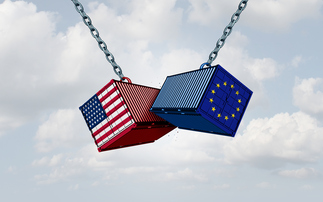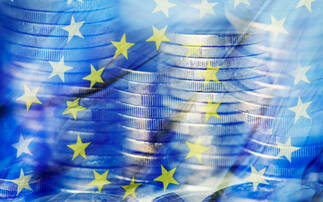While the Western world grappled with geopolitical tensions last year, the Russian stockmarket enjoyed a rapid recovery - emerging as the top performer of 2016 - but managers see further upside to come, particularly for consumer-led stocks.
Currency rebound
Meanwhile, the sharp falls in the oil price to below $30 per barrel in 2015 hit Russia's stockmarket and currency due to its heavy reliance on oil-related revenues.
The Russian rouble fell over 50% against the US dollar between the summer 2014 and January 2016. However, over the year to 27 February, the local currency has risen some 30% against the dollar as the oil price recovered to $55.
This year, investors are expecting further upside for the rouble. Justin Onuekwusi, multi-asset fund manager at LGIM, is planning to allocate to the rouble in his funds to take advantage of the improving economic and geopolitical situation.
He said: "It is clear [President Trump] is more conciliatory towards Russia and there is a greater chance of lifting sanctions in 2017. We also think the oil bear market has ceased.
"The way we think this transition mechanism will work is through the Russian rouble. The falls in the rouble have been massive and for it to get back to 2014 levels we are talking about an increase well over 20%.
"It is a medium-term trade for us and we are willing to take the volatility that comes with that, but it also comes with a double-digit carry, so it is relatively attractive."
Consumer recovery
The sharp depreciation in the rouble also caused inflation to hit 16.9% in March 2015, prompting the Central Bank of Russia to hike rates to 17% to stabilise the exchange rate and contain rising prices. But CPI inflation has now fallen to 5.4%, and the central bank has cut rates to 10%, with further cuts expected this year.
Pictet's Bannon said the disinflationary trend was a major contributor to the market's performance in 2016, and he expects this to continue this year.
"The population is very much in savings mode at the moment, but when the interest rates come down it will become less attractive [to save]. The next leg of the recovery will be consumer-led," he said.
Lukas Schmitz, manager of the SWMC Emerging European fund, said this makes consumer-exposed names particularly attractive, including housebuilders, retailers and air travel companies, while Bannon is also positive on telecoms and banks.
Meanwhile, Matthias Siller, manager of the Baring Eastern Europe fund, is also particularly encouraged by the fact Russian companies have been increasing their dividend payouts.
"Russia has managed to increase dividends to minority shareholders in US dollar terms. in 2014, you would have got $2.5 in dividends for a $100 investment; looking at the same stocks now your revenue is higher, $3-$4," he said.
"It is a very unique development in an environment where the oil price dropped and the rouble devalued. Companies now understand much better how to become more efficient and achieve market goals, without having to compromise on many things."














